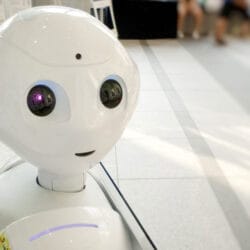2020-21 was a time to forget for most, but we can also see positive effects…
What will our world look like if we all are living longer lives, say to 100? What challenges lie ahead?
We are already living longer lives than ever before, and a trend that will only continue as technology advances healthcare & living conditions, and as education leads to more self-awareness about how to look after ourselves.
While there are many potential issues of technology making our lives too comfortable, we should certainly be grateful for the longer quality of life it has helped advance at such a fast rate.
Our Life Expectancy Has Increased Dramatically, But What About Our Life Span?
How life has changed in the last century or two.
The average life expectancy around the world today is 73.2 years, only 150 years ago (in 1870) that figure stood at just 29.7 years old.
However, we have to take into account that this is largely due to our advances in healthcare and the vast increase of infant survival rates. Our overall life span hasn’t actually altered that much when you consider the likes of Socrates and Plato who lived long lives into their 70’s and 80’s centuries ago.
That said when we look at the likes of South Korea and see how life expectancy has sky-rocketed in the past 100 years or so (in 1908 the average life expectancy was a mere 23.5 years compared to 83.5 years today – 50 year jump!), then you do take note.
Every year the life expectancy in the world increases. In 2021 it stands at 73.2 years. This figure looks set to increase as developing areas such as countries in Africa are catching up to the more developed countries.
Now with women in Hong Kong now expected to live to an average of 88.1 years, and with healthcare and self-awareness education constantly developing then it won’t be too long until that 100-year figure is reached.
Even if our life span hasn’t vastly altered yet, the fact that so many more people are getting to live out full lives, and with technology ever knocking on the door to find ways to further our life spans, then you can see how it will clearly have an impact on our world to be.
However, before we head into the possibilities of a longer life in the future, we should note how this belief that we will live longer lives can also hold us back in life.
The Issues With Thinking We Will Live Longer Lives
If the technology is there for us to use and manipulate a longer life then it will lead some people to do so, and in the advent of AI, biohacking, and the singularity on the horizon it begs the question of not whether we could but whether we should.
It can lead towards this ‘designer baby’ future where the quality of human relationships seems to have become overrun by the need to compete and survive in ways we never had to before thanks to technology – the same technology that led to much longer life expectancies and gave us this dawn of new choices. We now seem to expect to live longer and be all the better for it.
[hfe_template id=’6261′]
Even if this is a future that doesn’t quite exist yet, we have already seen how this expectation can towards complacency.
When you expect many tomorrows you can easily fall into the ‘I’ll do it tomorrow’ mentality. It becomes too easy when life is comfortable and you can put your feet up and watch TV instead. When we think we will live longer lives that urgency is missing (to make each day count).
The work ethic of our grandparents showed how life wasn’t always taken for granted. They didn’t think about the far future, they thought about the now, what was needed to survive.
In the past century as our populations increased competition was fueled and innovation led towards more people affording ‘the good life’. Yet, it didn’t necessarily change the dynamic of how people worked. The idea of a job for life became less popular but the specialist mindset was still as strong as ever.
We still found ourselves working in corporations in defined job roles and climbing ladders with little career change, seeking a comfortable life. Humans tend to preserve energy where possible, and knowing we would have to support ourselves and our families for many years ahead, there were few people who would go against this secure 9-5 work culture.
The thought of living longer lives only expanded the fear of changing careers or living more varied lives.
What seems like a blessing in having more days to ‘play’ with can, and has, led many to not seek to ‘play’ at all, as they fear living due to the amount of time they have to ensure their survival is met. It can stop a thriving mentality from developing, not because we aren’t capable of adapting, but because we haven’t really been taught how to.
Instead, we may even think we need to have a ton of money in our bank accounts before ‘affording’ the freedom of being able to only then do something more or something else with our lives (an irony of wanting freedom through finding security first).
We end up saving for retirement, for the 20 years or so of not working beyond our 60’s. We become indoctrinated to the notion of working so we can survive easier when we are older, or that we have to choose between either personal freedom or being responsible in helping others in society. We often become ingrained to do the latter without realizing we can, and should, do both.
The result of this ingrained mentality to be survivor worker bees is that our fluid intelligence begins to decline rapidly, as our more informed crystallized intelligence takes over. We simply become less adaptable to change.
Living Longer Now Means Being Prepared To Adapt Our Life And Work (Many Times)
Why would it be a problem in being less adaptable?
Well, as technology advances further we see the job for life security diminish more and more. If we are living much longer lives, or if technology is changing the landscape of our work more rapidly each year, then we simply have to learn to adapt, otherwise, we become specialist dinosaurs with more and more knowledge about less and less useful information in a changing and disruptive world.
Those not prepared to ‘start again’, possibly many times, simply may not have the choice. Industries they worked in might be long obsolete. It therefore becomes more important to keep adapting and to keep learning.
However, with so many people brought up in specialism-led environments (taught to go to school, university and find a career path and climb that ladder) where job security was seen as the bedrock of a more comfortable longer life, change hasn’t been as fast as the world which is changing around them.
People simply weren’t taught how to adapt when the tides change, but further advances in technology, and more globalized interactions, have further opened up younger generations to find more adaptable ways of living.
While it was only a few at first (as digital nomads will tell you) the change has been rising, and the recent pandemic is now bringing about a swifter change to the way mainstream workplaces operate. More people are learning to adapt to more flexible lives, remote working, and umbrella careers. The ‘scanner’ in some people has woken up.
People are also seeing how important it is to find balance, variety, and purpose as a part of living longer lives too.
There have been many books on the subject for some time such as ‘The-4-Hour-Work-Week’ which advocates how to escape the 9-5 and find the freedom to do what you want in life, from where you want, but we are realizing that living longer happier lives is not just about finding personal freedom.
People are adjusting better to the idea of leaving the 9-5 ‘secure’ job simply because it isn’t as secure anymore and there are many alternate options and ways of living a more balanced life, but they need reason to match it.
If life is longer we will simply get bored quicker in repeating the same routines over and over. Even sitting on a beach and escaping the rat race will become a boring routine after a while.
Personal freedom alone doesn’t provide a more varied purpose and this seems to be the cornerstone behind how we will live in the future. Life becomes more about building varied chapters of value, rather than just seeking our own story, we seek shared ones. We find freedom and value together.
This means being adaptable. Not just because technology and job opportunities will change faster than we do, but because we will seek to ensure our lives remain purposeful for the longer time we have ahead of us.
How Will The World Be Different If People Are Living Longer Lives Past 100?
Working
While no one has a crystal ball, it is fairly safe to assume that in the future most people can expect to reach 100 in their life, that retirement age will become later and later, and therefore, that our working-age requires more adaptable workers who will see multiple shifts in the way we work through the generations.
You will have multiple changes in technology during the course of a career, and multiple careers for that matter. The reason people don’t tend to change careers is because of fear of losing security and not having the skills to do anything else. However, the opposite will become true in the future as the smart generalist takes over from the specialist.
A specialists knowledge can become replicated through AI fairly easily leading the niche mentality to become less important. It’s not to say building specialist knowledge isn’t important, but it is to say that those with specialist knowledge need to be able to adapt and be prepared for a changing environment where that specialist knowledge suddenly isn’t as relevant to a changing world as it once was.
We could be in danger of learning more and more about less and less until at some point our knowledge becomes useless. We have to keep adapting and keep learning and training for different skills and different jobs.
Therefore, it won’t surprise to see more people having multiple careers. At 25 they could be a VR instructor, at 40 a speed photographer, and at 65 still working as something else entirely. There will be many new future jobs, of which we haven’t even envisioned yet.
Learning
As for the importance of university degrees, well for certain jobs that foundation of knowledge is still useful, but the hands-on work experience becomes more important, and those who do attend university could be more likely to do so more remotely, or even choose to self-learn more than before. The costs of university mount to a point where the reward doesn’t seem to be worth the outlay, which drops the demand and forces the scope of what universities offer to change. Nobody wants to mount up debts for careers that might become obsolete only a few years later. Instead we see education focus on the adaptable and competent qualities we need.
What about people who reach older age (75 plus by then)? Are they still working? We will arguably see gradual shifts in people ‘wanting’ to work beyond retirement. People won’t get nest eggs from simple service to one job (although it’s likely to see certain public sector work still contribute towards future retirements).
We will see the rise of part time jobs as the benefits of full time work don’t really give as much extra as they do today. It will be likely to see people who are much older still ‘choose’ to work part time within an area that couples as course learning.
The most important factors to living a long life (other than good healthcare) see the need to keep communicating and keep our mentality strong. While we are already seeing ‘companion robots’ surface in the likes of Japan to help elderly patients in nursing homes have someone to talk to, the idea seems pre-teen in its maturity.
We will find that human interaction is far far more important towards our lives, even more so as technology advances.
We may think today that technology can solve many issues, but that’s because it is still a relatively shiny new toy in people’s hands, but just like how we have seen the dangers of social media after its initial innocence and intended use, we also see how other forms of technology are best left as aiding humans rather than replacing humans.
As people age, they need to also keep their brains functioning. If we are just expected to sit around for 30 years after retirement then our bodies simply shrivel up first, and then our minds not too long after. We have no urgency or purpose to live for. Sure have grandchildren, and great-grandchildren to see and look after becomes a focus, but if most people are living to 100 then it is safe to assume that our minds need to match the healthcare provided to us.
It’s no life to sit in a nursing home (if that concept even exists then) and to wake up to take multiple pills just to get through the day and have little else to keep us going other than a companion robot. Elderly people deserve better for the long life and wisdom they have accrued.
It’s really about life quality anyway. We could live to 100 but be miserable and unhealthy for most of it, simply relying on medicine and treatment through our life. That’s not a good life, and it puts a huge strain on available resources if we all had to swallow multiple pills everyday for decades.









